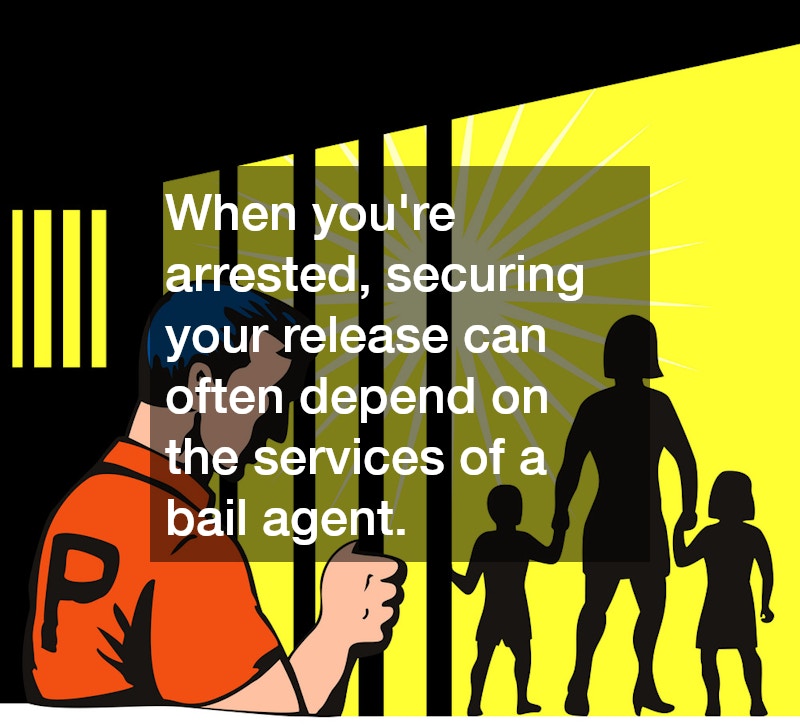What Happens if You Dont Pay Your Bail Bondsman?

Understanding what occurs when you fail to pay your bail bondsman is crucial, especially if you find yourself in the judicial system. This article explores these consequences in depth and aims to guide you through what you might expect.
The Role of a Bail Agent
When you’re arrested, securing your release can often depend on the services of a bail agent. A bail agent essentially acts as a guarantor for your temporary freedom, by paying the full bail amount to the court, often for a fee set at a percentage of the full bail amount.
This percentage is typically around 10% of the bail amount, although it may vary depending on jurisdiction. The bail agent’s responsibility doesn’t end with just paying your bail; they must ensure that you appear in court on the expected date. The relationship between the defendant and the bail agent thus extends beyond mere financial transactions and binds both parties legally.
Choosing to work with a bail agent involves signing a contract that obligates the defendant to certain terms and conditions. This contractual agreement highlights the importance of timely court appearances and the payment of all associated fees. Failure to meet these obligations can trigger a chain of adverse legal actions and financial liabilities. It’s crucial that all parties thoroughly understand and agree to these terms before proceeding. By comprehensively explaining these responsibilities, the bail agent ensures that the defendant is fully informed of the implications of defaulting on payments.
The financial aspect of working with a bail agent is often one of the primary concerns for defendants. While the bail amount is substantial, the fee demanded by the bail agent, though smaller, is still significant for many. This fee is non-refundable, even if the court eventually resolves the case in favor of the defendant. Therefore, defendants are required to make informed financial decisions and prepare accordingly. Ignoring these obligations can lead to complex financial and legal ramifications, making it imperative to prioritize these payments.
Consequences of Non-Payment
Failure to pay your bail bondsman can have severe consequences, both legally and financially. Initially, the bail agent is likely to take steps to recover the outstanding debt, which may include hiring a bounty hunter. This is a drastic measure but is within the rights conferred upon the bail agent by the agreement. The concern here is that failure to cooperate with these recovery efforts may result in the revocation of your bail, leading to your arrest and consequent re-incarceration. Thus, non-payment isn’t just about breaching a financial obligation; it is intricately connected to your personal freedom.
Being re-arrested due to non-payment can also tarnish your credibility in future legal proceedings. Judges might view this as a disregard for the judicial process, potentially influencing their decisions in future cases or requests for bail. Additionally, having a warrant issued for your arrest due to failure to pay can exacerbate legal woes, making legal counsel’s work more difficult. Apart from legal consequences, dealing with a warrant poses significant personal challenges, as it can affect employment, housing, and relationships. By failing to pay, you might set off a domino effect of complications that are challenging to resolve.
The financial implications of not paying the bail agent extend beyond the immediate debt, impacting your credit score. The bail agency may report the unpaid debt to credit bureaus, which affects your ability to secure loans or credit lines in the future. This could even have ramifications on significant life decisions such as buying a house or car. Furthermore, your co-signers on the bail agreement, often close family or friends, might also experience credit score impacts and be held financially responsible. Therefore, it is imperative to consider the broader financial impact before deciding to skip out on bail payments.
Steps to Take If You Can’t Pay
If circumstances arise that make it impossible for you to pay your bail agent, it’s crucial to act proactively. Communicating openly and honestly with your bail agent is the first step. Many bail agents are willing to negotiate payment plans or alternate arrangements if they are made aware of your situation upfront. Ignoring the issue is the worst course of action, as this leads to the aforementioned consequences becoming unavoidable. Keeping the lines of communication open can help mitigate some of the potential negative outcomes associated with non-payment.
Seeking legal advice if you’re unable to pay can be a vital course of action. Legal professionals can offer guidance on how to best navigate the situation with minimal repercussions. Assistance from a lawyer might also open up additional avenues that a layperson might not consider, such as negotiating with the bail agent directly for an amended fee schedule. Consulting with legal counsel could provide peace of mind and practical solutions, lessening the burden of facing such an ordeal alone. This approach stresses the importance of addressing financial difficulties with pragmatism and foresight.
Lastly, turning to community resources might offer support when struggling with bail payments. Non-profit organizations, legal aid societies, or even community programs frequently offer assistance to those entangled in the legal system. While not guaranteed, these resources can sometimes provide financial help or other forms of support to ease the burden of unpaid bail. By exhausting these options, you demonstrate a proactive and responsible approach to resolving your obligations. Accessing available support can mitigate, or even prevent, the worst outcomes of defaulting on bail payments.
Understanding the importance of fulfilling your financial obligations to a bail agent is essential. Failure to do so can lead to a litany of additional legal, financial, and personal challenges. By being aware of the consequences and taking proactive steps to address any difficulties, you safeguard your freedom and financial credibility.




